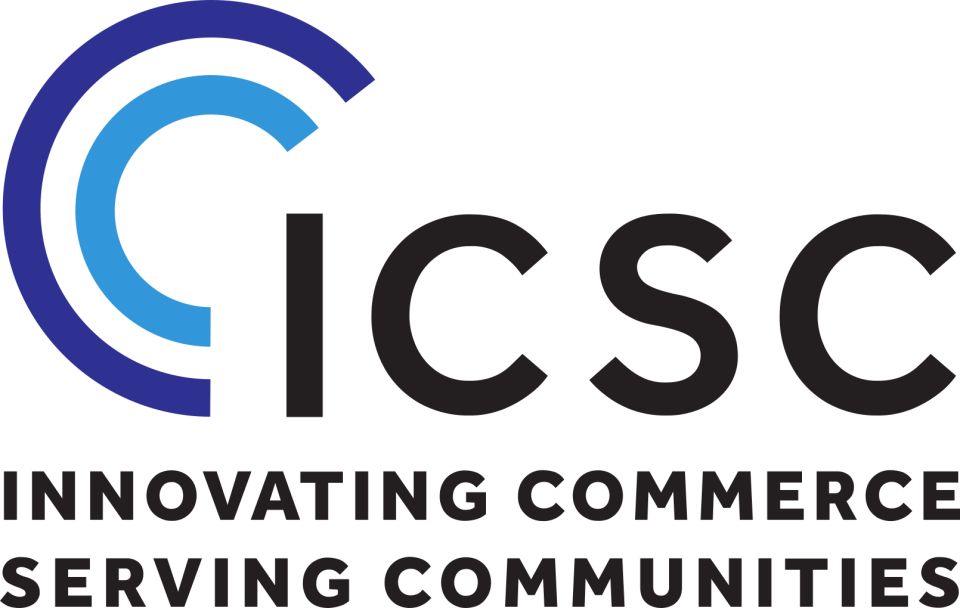ICSC Rebrands Amid a Transforming Industry

The ICSC is rebranding and broadening its agenda.
The trade organization will still be known as the ICSC but the tag line has changed to Innovating Commerce Serving Communities.
More from WWD
With the rebranding, the ICSC sends a message that its membership and scope of activities are wide, and not narrowly centered on shopping centers and other retail real estate.
The organization is also stepping up certain initiatives and programming to support small businesses, and spotlight new and emerging technologies that businesses can utilize and take advantage of. In addition, ICSC’s biannual “RECon” convention is being renamed “Here We Go” to set a more upbeat tone and suggest progress in the industry after a year and a half of pandemic-related disruption.
“Our membership has been broadening and the rebranding really reflects how that broadening is happening within the industry,” said Tom McGee, ICSC’s president and chief executive officer. “We want to reflect that. We want to be welcoming to all the changes happening in the industry. We want our brand to not be restrictive.”
In an interview, McGee explained that the ICSC acronym along with the new tag line “Innovating Commerce Serving Communities” will be used in all branding, marketing, events, communications and external relations. ICSC’s rebrand was nine months in the making and was developed with the agency Makeable. Ongoing rebranding efforts will encompass social media, digital advertising and a website relaunch.
McGee said ICSC terminology and messaging is shifting from focusing on retail real estate, particularly shopping centers, toward encompassing marketplaces and spaces. “That’s more reflective of not only traditional retail but really where people shop, work, play, gather and live. All those are part of the marketplaces of our members,” McGee said.

The ICSC has about 50,000 members in North America, primarily in the U.S. and Canada, though there are a couple of thousand members outside the U.S. as well. Aside from developers and landlords, ICSC’s membership includes retailers; architecture, design and engineering firms; construction companies; financial services; academic institutions; advertising firms; computer software and hardware companies; security firms; personnel firms; law firms and others.
“We want to be reflective of the dynamic nature of the industry,” McGee said. “Obviously, COVID-19 accelerated a lot of trends which were in place before. We want to lean into it. We really view our industry as kind of the intersection of commerce and communities. So that’s why you see the ICSC brand grounded in that tag line, ‘Innovating Commerce, Serving Communities.’ We do want to welcome anyone that fits into that umbrella.”
Asked if ICSC expects to broaden its membership through the rebranding, McGee replied: “I think it’s already happening, organically.” Through the rebranding, “It will become transparent we are a big tent. Anyone that is functioning in the pursuit of commerce and communities we want to be part of our organization.”
McGee explained that with the rebranding, “Our legal name, ICSC, does not change. We are doing business as ICSC. But the name International Council of Shopping Centers will not be used publicly at all. You will see ICSC with ‘Innovating Commerce Serving Communities’ as our tag line. We didn’t see the value in eliminating the acronym ICSC. It would seem silly and inconsistent with the respect and recognition it has in the marketplace. In maintaining the acronym ICSC, we honor the 65-year history of our brand. But we want to broaden the recognition of what that brand represents to be reflective of what is happening in the industry.”
Asked how ICSC might be operating differently, McGee answered: “We are really leaning into a lot of new initiatives. We are launching a Small Business Center of Excellence in the later part of this year. We have already been doing a lot from a small business perspective. We have taken the lead on a number of small business initiatives from an advocacy perspective as part of COVID-19 relief. So many small businesses are women-owned, minority-owned, first-generation American-owned. Sadly, so many small businesses have been disrupted by the pandemic. We want to help those businesses. There is a tremendous amount of new business formations taking place now, too.”
He said ICSC just released a tool kit to assist small business tenants in starting, managing and growing their business, and that ICSC is looking to partner with organizations that serve the small business community, and to become more of a conduit of information. ICSC, McGee said, would consider partnering with the Small Business Administration, chamber of commerces and other organizations and companies involved with small businesses. “We are in conversations.”
On the technology front, “We’ve always had a large number of technology companies that are members or participate at our events. We are going to lean into that more. There is so much happening in technology within this industry, with the convergence of the physical and digital worlds, curbside pickup, click and collect, logistical capabilities and point of sale systems. It’s a big part of innovating commerce,” as is how shopping centers and malls are changing their tenant composition, McGee said.
The biannual convention, a forum for idea exchange, education, introducing new projects, leasing activity and networking, has been rescheduled to Dec. 5 to 7 in Las Vegas; May 2022 in Las Vegas, and in New York City in December 2022. In Las Vegas, the event typically draws more than 30,000 attendees; New York, around 10,000. The ICSC also stages about 10 regional conventions outside New York and Las Vegas, and about 100 events annually, in total, and advocates to shape public policy and opinion.

The changes at ICSC come at a turbulent time for the shopping center industry. It’s been impacted by the rise of e-commerce, the pandemic, retail bankruptcies and changing consumer shopping patterns, though shopper traffic has picked up in recent months. While upscale “A” type malls with high productivity rates continue to thrive, many “B” and “C” level ones are either closing or resetting their mix of tenants. Last year, Coresight Research predicted that roughly one-quarter of American malls will close down in three to five years and Moody’s Analytics expects roughly 135 million square feet of space at regional malls to become available during that time.
According to CoStar Realty Information Inc., in the U.S., there are 566 regional malls; 601 super regional malls; 113,798 open air centers; 68,927 strip/convenience centers; 31,706 neighborhood centers; 414 outlet/value centers; 2,316 power centers, and 602 lifestyle centers.
Last year, the Simon Property Group and Brookfield Properties’ Asset Management unit teamed up to buy the retail operations of J.C. Penney, to keep the department store chain alive in their malls. Simon and Brookfield have been actively transforming several shopping centers with different services, end-uses and experiences, such as gyms, clinics, groceries and residences, to be more relevant and less dependent on traditional retailing. Simon has also teamed up with the Authentic Brands Group, through their SPARC partnership, to buy Eddie Bauer, Aéropostale, Lucky Brand, Nautica, Forever 21 and Brooks Brothers.
McGee characterized such retail-real estate tie-ups are “consistent with innovation. Smart business people look at new and creative ways to provide value for their constituencies,” McGee said. “I’m not surprised by it. Every developer and retailer has to decide for themselves whether such a combination makes sense for them. It’s a natural evolution you would expect to take place in an industry of our size and scale.”
Sign up for WWD's Newsletter. For the latest news, follow us on Twitter, Facebook, and Instagram.

